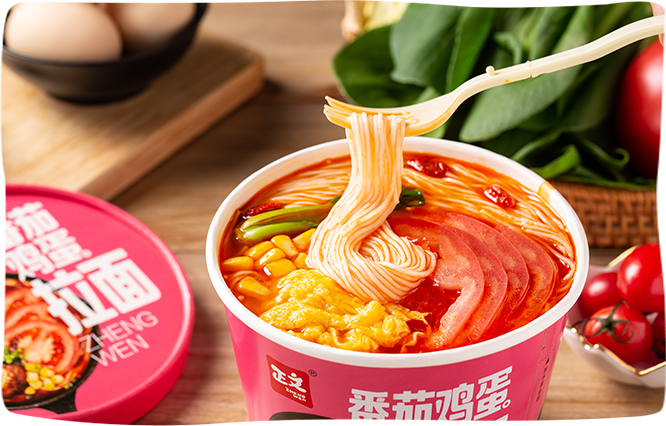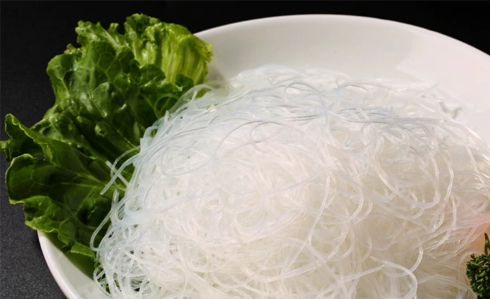Understanding the factors that influence the expiration of ramen is crucial for maintaining its quality and ensuring safety. Ramen noodles, whether instant or fresh, come with varying shelf lives impacted by several key elements. This section delves into these determinants, providing insights into how they affect the longevity of your favorite quick meal.
Preservatives and Ingredients: Instant ramen typically contains preservatives and artificial flavors that extend its shelf life. These additives prevent the growth of bacteria and slow down the degradation process. However, the presence of fats and oils in the noodles can eventually lead to rancidity, affecting the taste and safety of the ramen. On the other hand, fresh ramen, lacking these preservatives, tends to have a much shorter shelf life.
Packaging: The shelf life of ramen is also significantly influenced by its packaging. Instant ramen is often sealed in airtight packets or cups, which protect it from exposure to moisture and air—two critical factors that can lead to spoilage. Ensure that the packaging is intact without any tears, holes, or signs of damage. Compromised packaging not only shortens the shelf life but also exposes the noodles to potential contaminants.
Storage Conditions: Proper storage is essential to prolong the shelf life of ramen. Both instant and fresh ramen should be stored in a cool, dry place, away from direct sunlight and high temperatures. Humidity and heat can accelerate spoilage, promote the growth of mold, and cause the fats within the ramen to go rancid more quickly.
Storage Factor | Impact on Instant Ramen | Impact on Fresh Ramen |
Temperature | High temperatures can accelerate fat degradation and spoilage. | Heat can promote bacterial growth and spoilage. |
Humidity | Moisture can lead to mold growth and packet degradation. | Increases risk of spoilage and noodle degradation. |
Light Exposure | Can degrade nutrients and affect flavor. | Can cause discoloration and nutrient loss. |
· Expiration Dates: It's essential to pay attention to the expiration or best-by dates on ramen packaging. These dates provide a guideline for when the product is expected to retain its optimum quality. While some instant ramen might still be safe to consume slightly past this date, the quality, especially in terms of taste and texture, may not be ideal. Fresh ramen, due to its lack of preservatives, should be consumed by the date advised to avoid any risk of foodborne illness.
The shelf life of ramen noodles can vary significantly based on the type (instant vs. fresh), storage conditions, and whether the package is opened or unopened. Understanding these factors can help you maximize the longevity of your ramen noodles while ensuring they remain safe and tasty to consume.
· Shelf Life: Instant ramen noodles are known for their long shelf life due to the drying and preservation processes they undergo. Typically, they can last anywhere from 6 to 12 months past the production date when stored properly.
· Storage Tips: To ensure maximum shelf life, store instant ramen in a cool, dry place away from direct sunlight or heat sources. Keeping the noodles in their original, unopened packaging also helps preserve their freshness.
· Quality Indicators: Even though instant ramen can last quite a while, it's essential to check for signs of spoilage, such as changes in color, texture, or odor, especially if the package is near or past its expiration date.

· Shelf Life: Fresh ramen noodles have a much shorter shelf life compared to their instant counterparts, usually lasting around 1-2 weeks in the refrigerator.
· Storage Tips: Fresh ramen should always be stored in the refrigerator and kept in an airtight container or packaging to prevent exposure to air and moisture, which can accelerate spoilage.
· Freezing: If you need to extend the life of fresh ramen noodles, you can freeze them. Properly stored, fresh ramen can last for 1-2 months in the freezer.
Always inspect ramen noodles for any unusual odors, colors, or textures. If the noodles appear dry and brittle, have an off smell, or the color has changed, they should not be consumed.
Type of Ramen | Unopened Shelf Life | Opened Shelf Life | Storage Location |
Instant Ramen | 6-12 months | 1 month | Pantry |
Fresh Ramen | 1-2 weeks | 3-4 days | Refrigerator |
By understanding these key aspects and regularly checking your ramen noodles for signs of spoilage, you can enjoy this popular dish safely and at its best quality. Remember, when in doubt, it's always better to err on the side of caution and dispose of any ramen noodles that you suspect may have gone bad. Proper storage and regular inspection are your best tools for ensuring the longevity and safety of your ramen noodles.
Proper storage practices are paramount for extending the shelf life of ramen and ensuring it remains safe and enjoyable to eat. Whether dealing with instant or fresh ramen, understanding and implementing the right storage techniques can make a significant difference in maintaining the product's quality. This section provides detailed insights into how to store both types of ramen effectively, utilizing target keywords to optimize content relevance.
Instant Ramen Storage: Instant ramen's longevity and safety are highly dependent on its storage conditions. To maximize shelf life and preserve the integrity of the noodles and their flavor:
Keep in a Cool, Dry Place: Store instant ramen in a pantry or cabinet away from direct sunlight, moisture, and heat sources to prevent the degradation of preservatives and oils, which can lead to rancidity.
Check Packaging Integrity: Ensure the ramen's packaging is not compromised. Tears, holes, or punctures can expose the noodles to air and moisture, accelerating spoilage and potentially allowing pests or contaminants to enter.
Avoid Temperature Fluctuations: Consistent storage temperatures help maintain ramen quality. Fluctuations can cause condensation inside the packaging, promoting mold growth or other spoilage signs.
Fresh Ramen Storage: Fresh ramen is more perishable than its instant counterpart, requiring more careful storage considerations:
Refrigeration: Fresh ramen should be stored in the refrigerator, ideally in its original packaging. If opened, transfer it to an airtight container to prevent exposure to air and contaminants.
Freezing for Longevity: If you don't plan to consume fresh ramen within its recommended shelf life, consider freezing it. Freezing can extend the life of fresh ramen significantly, although it's essential to thaw it properly to maintain texture and flavor.
Monitoring and Rotation: Regularly check your ramen stock for any signs of spoilage or past expiration dates. Rotate your stock by using older packages first to ensure you consume them within their shelf life.
Type of Ramen | Storage Location | Maximum Shelf Life | Key Considerations |
Instant Ramen | Pantry/Cabinet | 6-12 months | Keep away from heat and moisture. |
Fresh Ramen | Refrigerator | 1-2 weeks | Store in airtight containers. |
By adhering to these storage practices, you can help ensure that your ramen remains a safe, tasty, and convenient meal option. Remember, while proper storage can extend the life of ramen, it's always best to consume it within its shelf life to enjoy its best quality. Additionally, always inspect ramen for any signs of spoilage before cooking, especially if it's close to or past its expiration date.


